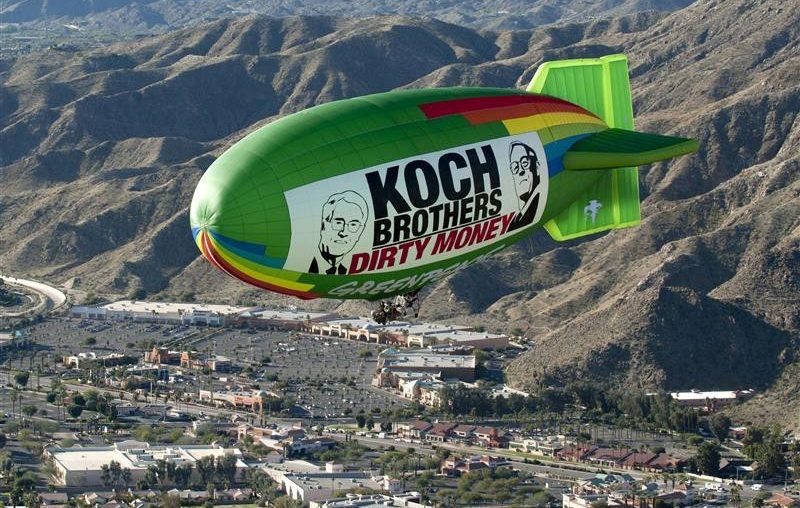The federal government has slapped eight of the American Legislative Exchange Council‘s (ALEC) known corporate board leaders with more than $6.2 billion in federal fines and penalties for misconduct or corporate crimes since 2000.
The leading ALEC scofflaws include pharmaceutical giant Pfizer ($4.350 billion), Exxon Mobil ($715 million), Koch Industries ($657 million), AT&T ($421 million), United Parcel Service ($35 million), alcohol multinational Diageo ($17 million), Peabody Energy ($16 million), and Altria (owner of Phillip Morris, the largest U.S. cigarette manufacturer) ($7 million).
The companies pay thousands of dollars each year to sit on the “Private Enterprise Advisory Council” of ALEC, a pay-to-play organization that lets its corporate members rub elbows with lawmakers and draft bills promoting their interests for legislators to take back home to their states. ALEC re-branded its corporate board as an “advisory council” in 2013 after Common Cause and CMD filed a complaint against the group with the IRS for being a corporate lobby masquerading as a charity.
The extensive violations data is accessible for the first time thanks to “Violation Tracker,” an expanded database of federal regulatory actions created by Good Jobs First. The tally of fines and penalties does not include state enforcement actions, such as the billions that Altria and three other major tobacco companies are required to pay for illnesses caused by smoking under a master settlement with 46 states.
Good Jobs First’s database shows that the eight ALEC companies had over 2,000 separate instances of federal fines and penalties for health and safety, environmental and consumer protection violations, employment discrimination, and other categories of misconduct over the past 18 years.
Given that only a small percentage of corporate misconduct triggers federal action resulting in fines and penalties, the actual number of violations is most likely much larger.
Four of ALEC’s corporate board companies—Pfizer, Exxon-Mobil, Koch Industries, and AT&T—are among Violations Trackers’ top 100 non-financial-industry bad actors. Banks and financial firms account for the largest federal fines and penalties.
Exxon provides a prime example of why repeat violators ally themselves with groups like ALEC in order weaken regulations and influence public policy. Exxon pumped more than $1.7 million into ALEC over a 17-year period as part of a written industry plan to use ALEC to sow uncertainty about climate science and undermine international climate treaties, and to promote Exxon’s legislative goals around cap-and-trade policies, fracking, the Keystone Pipeline, and opposition to the Obama Administration’s Clean Power Plan.
CMD and Common Cause filed a detailed complaint with the IRS in October 2016 regarding ALEC’s misuse of its tax-exempt status to promote Exxon’s corporate interests.
Subsequent articles will look at the regulatory behavior of other individual ALEC companies, as well as the record of task force members on the very issues they seek to affect.



I say “Drain the swamp TRUMP has created since his election”!!!!
These corporate leaders must know, this world and this future we share with you, is the responsibility of us all. This responsibility first, by virtue of your profits is yours to hold above profits and above power.
We cannot allow this to be pushed forward as the problem of our future. The costs to those generations of our grandchildren’s grandchildren, will be to great and too late.
The Koch business model is visionary long term greed. These corporations calculate the risk and cost and take the fines as saving lives by folowing the rules will reduce profits further than destroying atmosphere. poisoning city water supplies. Bear in mind that these fines reduce profits and are therefore ultimately paid by the average tax payor. We pay their fines after they take the profit reduction the taxable income is reduced by these fine. The fact that the rethuglican party is so strong illustrates the greed and self concern of the white US voter.
Corporate American is not my friend. I hesitate to say they are my enemy, but getting easier by the day to feel that way. The pharma company being the biggest just throws fuel on the fire. We need to elect people who are not beholden to corporate entities, but how?
By publicly financed elections, with private money excluded , and a system of requiring caandidates to become licensed to run for offices. 1 out of 4 jobs now require licensing and fulfilling educational and/ or training requirements. This would not conflict with Citizens United, the billionaires could still spend millions to have their voices heard, but would have any control over campaign finances. All elected officials would be prohibited from soliciting funds for their campaigns, since all candidates would receive the same amount of cash and media coverage. They would actually be full time congressmen and presidents, no longer required to spend half their time begging money for their next campaigns.
I feel that the more outside money that comes into an election the less fair the election becomes. The wealthy are owning the gov. This is not what the American people want. We want fair representation. Please get the money out of politics and let everyone have a fair share.